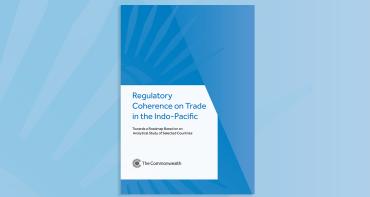Shock financing, youth unemployment, the successor framework to the Millennium Development Goals and private sector participation discussed at Commonwealth Finance Ministers Meeting
Commonwealth finance ministers concluded their 2012 annual meeting in Tokyo, Japan, on 10 October 2012, with a call for concerted global action to address youth unemployment and a deepening of efforts to address the adverse impacts of external shocks, particularly for the poorest, smallest and most vulnerable developing countries.
The meeting followed extensive earlier discussions by Commonwealth senior finance officials on the framework and the development goals which should succeed the Millennium Development Goals when these come to an end in 2015, and on options to catalyse private sector participation through several emerging new instruments and asset classes.
The meetings were held in the wings of the Annual Meetings of the International Monetary Fund (IMF) and the World Bank.
The ministers discussed various ways of addressing the on-going uncertainty in the world economy, and responding to exogenous shocks − two factors that have constrained the ability of a number of Commonwealth countries to address their macro-economic challenges.
“Shocks have become more frequent, more quickly amplified, and for small and vulnerable developing countries particularly, they have often become more damaging than in the past,” they said.
“For all Commonwealth countries, building resilience, dealing with the discomfort of uncertainty and addressing shocks continue to be significant and on-going challenges."
In considering solutions, ministers recognised the need for adequate, reliable and readily accessible shock financing as one key measure.
The ministers welcomed the steps taken by the IMF and World Bank, regional development banks and the European Union to both strengthen the design and increase the volume of shock financing during the global economic crisis. Ministers noted the particular opportunity presented by the current IMF review of its shock facilities.
"This is a particularly important opportunity to contribute Commonwealth perspectives and communicate Commonwealth priorities, in order to strengthen the adequacy and accessibility of these shock facilities, particularly because of the beneficial impact this can have for the many of the worlds' poorest, smallest and most vulnerable members.” ministers said.
At a news conference following the conclusion of the meeting, Commonwealth Secretary-General Kamalesh Sharma, said that the diversity of the organisation − with membership across the globe and at various levels of development − makes it a “a true microcosm of the world,” and as such, a perfect platform for providing useful input for addressing global challenges.
“In the Commonwealth, all members irrespective of size or development have an equal voice. The Commonwealth family is based on more than 60 years of mutual respect, trust, and co-operation, and principles of democratic decision-making,” Mr Sharma said.
St Kitts and Nevis Prime Minister and Minister of Finance, Dr Denzil Douglas, who also spoke at the news conference regarding a specially convened meeting of finance ministers from Commonwealth small and vulnerable economies on 9 October said: ”We wanted to pay some attention as to how we could build consensus among ourselves as ministers of finance of the Commonwealth in presenting a particular platform to other members of the Commonwealth who are in the G20, and also to other international financial institutions and the international community generally, as to what we see will be necessary to assist us at this very critical time in our development.”
The ministers also welcomed the increasingly strong ties between the Commonwealth and the G20. They noted that this has provided an opportunity to highlight to successive G20 Presidents and to the G20's Development Working Group the priorities of developing countries in addressing their development challenges.



